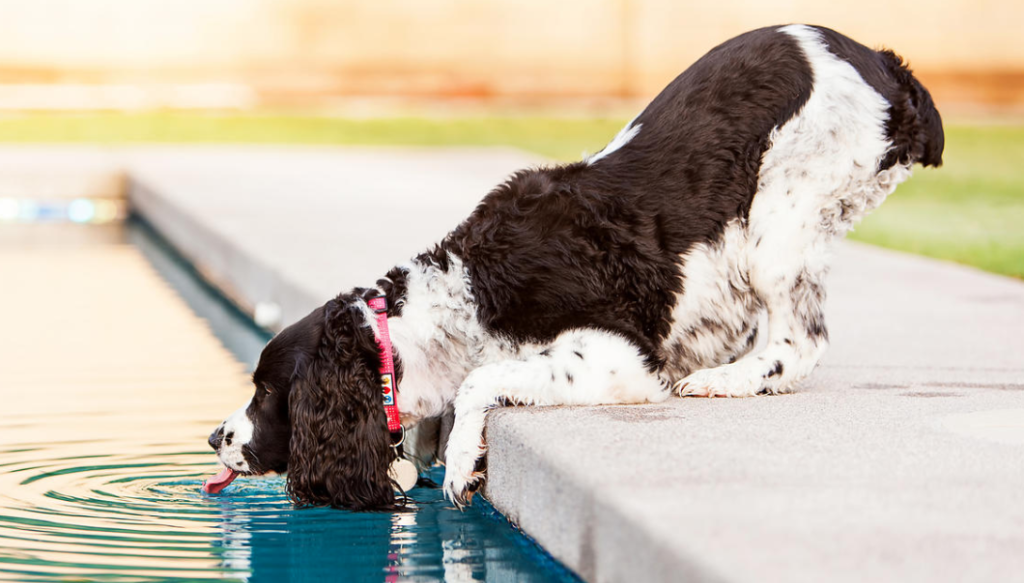With summer a few months away, the warmer weather means that we need to be more conscious about making sure our dogs have a steady supply of fresh, clean drinking water. This is especially important if you have a pool since you don’t want your pet to be drinking pool water. As cool and refreshing as it might look to them, it actually poses a major risk.
And below, are exactly the risks that come from your dog ingesting pool water:
Risks with Pool Water Consumption
Toxins
It goes without saying that pool water is pumped full of chemicals such as chlorine and algaecides meant to keep the water disinfected and free from growing plant life. While they’re great for pool maintenance, these chemicals pose a risk to pets. While the chemical levels are kept low enough for those people or pets who occasionally on accident ingest the water, there is still the risk of developing problems over large consumptions of pool water. Some of these issues can include irritation or burns to the esophagus. In addition, if a pet is allergic to one of the chemicals in the pool, they can develop a life-threatening reaction.
Microorganisms
Pools can be breeding grounds for bacteria and other fungi if not properly maintained. Even still, a well-maintained pool that is regularly treated with chemicals can still have trace amounts of bacteria and fungi. One such bacteria that can sometimes be found in pools is Escherichia coli (E. coli), which is passed by ingesting fecal matter. E. coli can cause all kinds of issues. And while the chances of your pet ingesting E. coli are low, it’s still possible, so why risk it?
Aspiration
Aspiration happens when water or other foreign material goes into the lungs. Pets who drink pool water may accidentally aspirate water, either by an improper stance when drinking or by the given amount of water available. Cats are particularly at a higher risk for aspiration than dogs. Aspiration will result in coughing, gagging and regurgitating the water that was ingested. It’s not pleasant, but if enough water gets into their lungs, they can develop pneumonia. Aspiration pneumonia is a very serious medical issue that needs immediate medical attention. The signs to watch out for are trouble breathing, noisy breathing, depression and a blue tint to the lips and gums.
Stomach Upset
The most common problem that is associated with drinking pool water is an upset stomach. Dogs or even cats who rapidly drink pool water are at a higher risk of developing stomach upset, the signs of which include vomiting, regurgitation, and discomfort. While it’s not a life-threatening problem, if it’s serious enough, your pet can develop chronic vomiting which can lead them to become dehydrated – and that is a potentially lethal problem.











